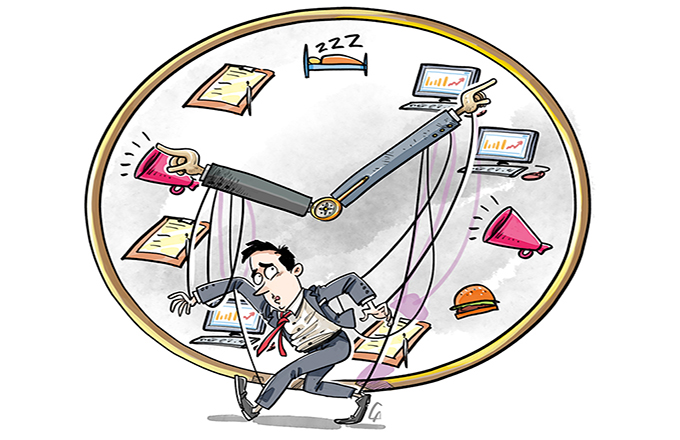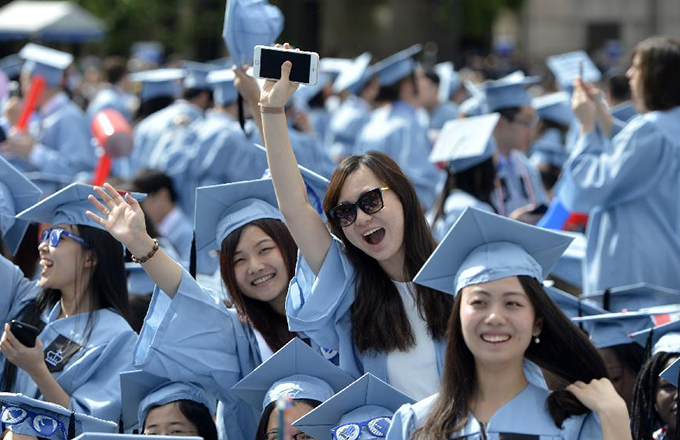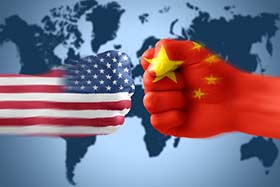Facts, figures underline 20 years of achievements
Zhang Xiaoming, director of the Central People’s Government’s Liaison Office in the Hong Kong Special Administrative Region, gave an interview with Xinhua News Agency last week as part of a series celebrating the 20th anniversary of the establishment of the HKSAR. In the interview he presented critical facts proving “one country, two systems” in Hong Kong has been a great success. Indeed there is nothing better than facts and figures to show what a phenomenally successful undertaking implementation of “one country, two systems” has been. That is not to say the past 20 years saw no difficulties or challenges in Hong Kong’s development but those problems cannot take away our achievements and hope for a better future.
Hong Kong celebrates the 20th anniversary of its return to China on Saturday. Looking back at the past 20 years we see authorities have kept true to the original intent of “one country, two systems”; on the premise of exercising sovereign rule over Hong Kong the central government has done its best to maintain what makes the city unique, charming and competitive as well as its stability and prosperity. It’s a fact no one can deny.
Zhang listed six aspects that reflect successful implementation of “one country, two systems”, including the fact Hong Kong has enjoyed 20 years of prosperity and stability despite many serious difficulties, such as the current global economic downturn caused by the international financial crisis of 2008. Hong Kong’s gross domestic product increased from HK$1.36 trillion in 1997 to HK$2.49 trillion last year. The city’s economy managed to achieve an average 3.3 percent in real annual growth from 1998 to last year despite two international financial crises — which is more than many much bigger developed economies can say about theirs.
On employment Hong Kong has done much better than other developed free markets. Compared with a 7 percent to 8 percent unemployment rate found in many developed economies in recent years Hong Kong has enjoyed 3.3 percent to 3.4 percent unemployment since 2012, close to technical full employment. The number of financial assistance for jobless recipients has decreased for 89 months.
The financial markets have thrived as well. Funds raised through initial public offerings reached HK$194.8 billion last year letting Hong Kong retain its top place in the world, leaving Shanghai in second place and New York in the dust at third. Hong Kong has been the world’s leading offshore yuan trade hub, too, accounting for 70 percent of yuan-denominated cross-border trade clearing worldwide at 21 trillion yuan ($3.1 trillion) by October 2015. With the Shanghai-HK Stock Connect, Shenzhen-HK Stock Connect and Mainland-HK Bond Connect going online more capital is flowing into Hong Kong as we speak.
All those achievements are hard-earned and anyone free of political or ideological bias would agree Hong Kong owes them to “one country, two systems” more than anything else. It is an undeniable fact that, precisely because of “one country, two systems”, Hong Kong has been able to benefit so much from the nation’s unparalleled economic growth over the years, not to mention the unreserved support by the central government and mainland compatriots every time Hong Kong was hit by natural or manmade adversity.
Some people have tirelessly sung praises of British colonial rule since it ended 20 years ago in an attempt to glorify the colonial past and trash today’s Hong Kong. The truth, however, is that the SAR government has done far better to improve people’s well-being in past 20 years than the British Hong Kong administration did. One outstanding achievement is minimum wage legislation, which successfully became law after years of hard bargaining.
In terms of public spending on livelihood improvement, the SAR government has more than doubled the annual total over the past 20 years from HK$235 billion in the 1997-98 fiscal year to HK$501 billion in the 2016-17 fiscal year. The SAR government also established Hong Kong’s own “poverty line” for related policymaking as reference. Meanwhile, since the 2007-08 fiscal year the government has earmarked a certain amount of funds every year for use in one-off financial assistance. It is estimated the total of such one-off spending has reached HK$320 billion in the past 10 years. The extremely difficult endeavor of standard working hour legislation is also in the works as we speak.
The author is deputy director of the Culture, History and Studies Committee of CPPCC and an honorary president for life of the Federation of Hong Kong Guangdong Community Organizations. His commentary originally appeared in Chinese in Wen Wei Po on June 22.

























